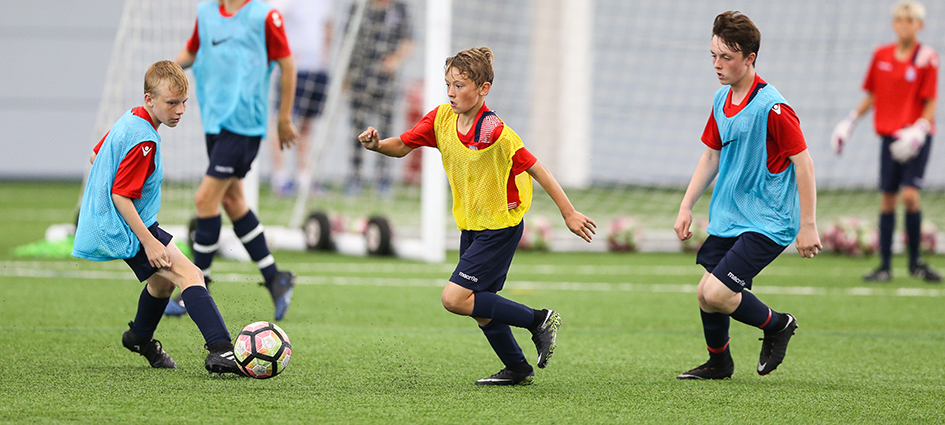Youth Development Phase DNA

The importance of the Youth Development Phase
- The Boot Room
- 04 May 2020
Supporting the development of players in the Youth Development Phase gives us a unique opportunity – which comes with significant responsibility – at such a formative time in their lives..
The quality of their experiences through these changing years will help shape their attitudes towards sport, physical activity and learning, potentially well into adulthood.
In the video below, Graeme Carrick, DNA Youth Development Phase lead, explains more.
Whether they're girls or boys, they're still children. They will change, grow and develop through early to mid-adolescence, but they're still not adults. They’ll become physically more mature; more socially aware; more independent; and develop greater playing capabilities, but they still need continued positive support from adults.
It’s important to understand that they’ll develop as young people regardless of your involvement, certainly physiologically, but that by offering appropriate care, support and challenge you can help guide their development.
Their experience of football and of being coached must be positive, enjoyable and memorable in order to foster a lifelong love of the game and a love of being active and healthy.

Remember they're still children and still developing - they're still not adults
Relationships with adults often change as youngsters develop. They still need you, but your support might need to look different to when they were younger children. Different environments and experiences link with genetics to shape the path of each person’s development. So it’s really important for coaches to provide the right sporting environment for players to flourish in, and the right mix of experiences and opportunities suitable to their individual stages of development.
Coaches must always keep in mind that the players have lives outside of football too and through these years they’re likely to experience increasing pressures through school, their peer groups and maybe even from themselves.
It’s crucial that coaches cater for the development needs of each individual. Some aspects of a child’s development towards adulthood can be visible: how the body changes through puberty; musculoskeletal growth; and changing physical and technical capabilities on the pitch.
Other changes are far less visible, such as changes in the brain and a heightened sense of self-awareness in relation to others. As coaches, we must carefully nurture them through this period, and The Youth Development Phase DNA will provide considerations and suggestions to help, guide and support you.

This age phase is also an important period in a player’s football development, because when the player changes – so does their game. As they gain greater tactical understanding and self-awareness, players move to an 11-a-side format and begin to understand how and what they contribute to their team. As a coach, you’re in a great position to help them navigate this period of change and maximise learning opportunities as they arise. The Youth Development Phase doesn’t last forever, so make the most of it.
Building on experiences in the Foundation Phase, our role is to continually promote the DNA key messages:
- Stay on the ball, excite with the ball and connect and combine creatively
- Defend in a positive, enthusiastic and intelligent way, mastering a variety of techniques and roles.
- Transition instinctively and positively in both offensive and defensive situations.
As our youngsters figure out who they are as people, they’ll also figure out who they are as players and you can help by providing time, patience, challenge and support.
To find out more, explore our Youth Development Phase DNA playlist.























